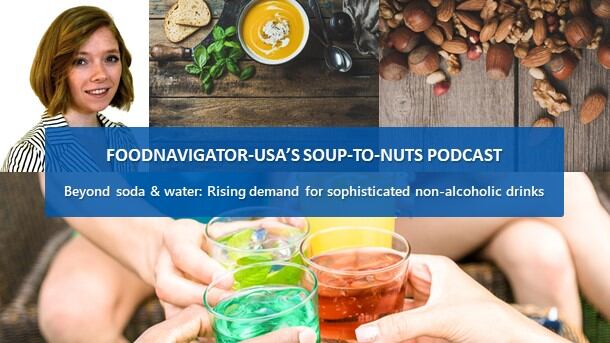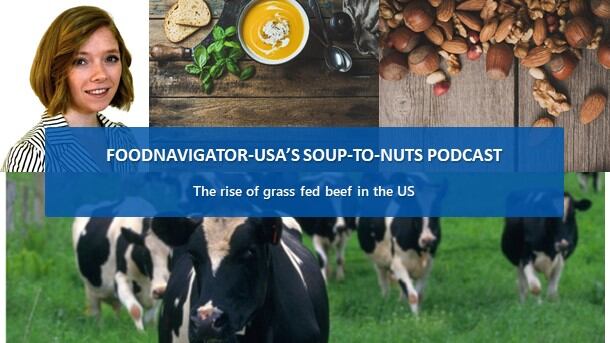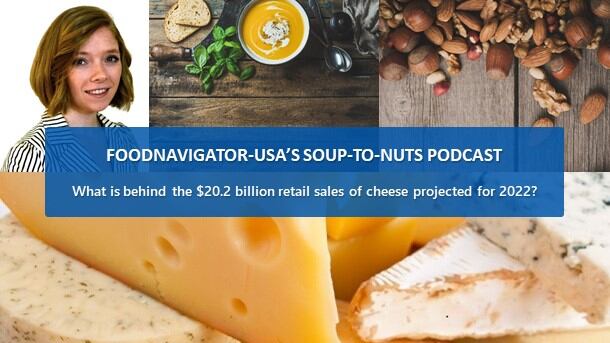Increasingly aware of and unhappy with this evil twist of irony, a quickly growing segment of the population is eschewing liquor, but not the celebrations and social gatherings where it often is served – creating a need for elevated beverages that are just as indulgent and fun, but can be enjoyed without the negative side effects.
This episode of FoodNavigator-USA’s Soup-To-Nuts podcast explores what is behind consumers shifting preference away from alcohol, what they want instead and how innovative startups are meeting this demand.
More people are saying no to alcohol
According to research conducted in the UK by the think tank Demos, 66% of Millennials don’t feel that alcohol is important to their social lives, and 19% don’t drink at all. Of those who do drink only 3% said it was an essential element of socializing for them – suggesting the rest could give or take it.
Other research conducted by Mintel suggests that a lower interest in alcohol could be here to stay based on the behavior of today’s youngest legal drinkers. The consumer market research group recently found a significant portion of Gen Zers who are old enough to drink alcohol, actually don’t. Specifically, it found one in five consumers 22 to 24 years old have not had alcohol in the past three months.
Looking at the population overall, one industry insider noted that 30% of Americans don’t drink and more than double that take ‘breaks.’ In addition, Gallup Historical Trends data reveals an increasingly negative view of alcohol, as well as a slight overall decline in consumption across all consumers who can legally drink. For example, it found in July 2018 63% of those surveyed said they “have occasion to use alcoholic beverages,” which is down from 67% in 2010. Similarly, the average number of drinks consumed in a week fell slightly to 3.9 last month compared to 4.8 in July 2010.
Health and wealth are fueling the trend
So, what is behind this trend?
According to Laura Taylor, the creative genius behind the startup handcrafted sparkling mocktail brand Mingle, concern about health and wellness is a big factor.
“People are seeking better-for-you options across the board, whether it’s a boutique fitness outlet or high-end organic product. When people choose not to drink, they don’t want a soda, they don’t want water. They want something that appeals to them, that makes them feel special,” she said.
Other research suggests that younger consumers are opting out of alcohol because it is too expensive and because they want to ensure they have control over themselves and awareness of their surroundings at all times.
As virtuous as that sounds, another reason could be the increasing availability and acceptance of cannabis as an alternative way to let loose, but again, avoid the side effects the next day.
Meeting demand
Whatever the reason, entrepreneur Nicole Mills from Tost Beverages says, “We have seen the end of the wine o’clock culture,” and as people choose healthier lifestyles, brands and companies need to be there to support them.
Which is exactly why, Mills says, Tost was created.
“Tost was originated as an alternative for people who didn’t want to drink, but wanted something upscale and elegant to have with meals. And so we had input from the top chefs in the country … and flavorists to help use develop something that would pair well with any meal and be a great complement to elegant dining,” she said.
She explained Tost’s blend of white tea, white cranberry and ginger combined with its sparkling wine-esque presentation meet this demand.
This desire to have something elegant or just as sophisticated as an alcoholic cocktail also is what prompted Taylor to create her mocktail brand Mingle.
“The whole heart and spirit of Mingle was founded based on my desire to create a brand where it made me feel part of the occasion. It is something that is natural, light and refreshing, but also premium and sophisticated,” she said.
Mingle’s beverages come in elegant wine bottles that have bright splashes of color that make them both high-end and approachable. They also come in four flavors: Moscow Mule, Cranberry Cosmo, Melon Mojito and the Blackberry Hibiscus Bellini.
A personal touch
While Tost and Mingle offer a convenient and elegant option for non-drinkers, the startup Herb & Lou’s offers a more hands-on and creative experience for those who want to enjoy the whole process of making and drinking a cocktail, but without the alcohol.
Company spokeswoman Arielle Roemer explained that Herb & Lou’s “infused cubes” combine all the juices, tinctures and prime ingredients called for in classic cocktails in an individually wrapped cube that can be frozen and either tossed in a shaker with alcohol or served as the rocks with seltzer for a non-alcoholic version.
The different options – all of which recall classic cocktails – are based on the recipes of the founders’ grandfathers, which were discovered “scribbled on pieces of paper,” Roemer explained.
The other benefit of the brand, even for those who drink alcohol, is that by eliminating the need to mix and muddle, hosts can spend more time with their guests and less time in the kitchen shaking drinks and making a mess.
A healthier choice for people and the planet.
Ovine, another industry newcomers, offers a beverage that not only is healthier for consumers looking to avoid the ill effects of alcohol, but is also healthier for the planet by reducing food waste.
The company’s CTO Adi Seifert explained how Ovine is creating a water that tastes like the memory of wine, but using actual wine grapes.
“Ovine is a company that basically reuses waste from the wine industry,” by taking the spent grape skins and seeds leftover from making wine and processing them to create a water that has all the health and antioxidant benefits of wine, but with less waste, she said.
Positioned as a premium product, Ovine will focus first on high end restaurants and food service, which many players in the space said was a high-need area. They explained that when enjoying a fancy meal or meeting friends at events it can be frustrating to feel left out by having limited non-alcoholic options. The forum also is a good way to introduce a brand to consumers who can then create demand at the retail level.



